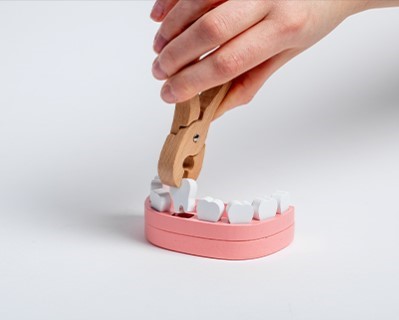Tooth Extraction
Purpose: Tooth extraction is the removal of a tooth that is damaged, decayed, or causing overcrowding in the mouth. It may be necessary if a tooth cannot be repaired with a filling, crown, or other treatment, or to prepare for orthodontic work, such as braces, or the removal of impacted wisdom teeth.
Procedure: During tooth extraction, the dentist or oral surgeon loosens the tooth in its socket using special instruments, then carefully removes it. For simple extractions, only local anesthesia is needed, while surgical extractions, such as removing impacted teeth, may require stitches and additional care.
Hospital/Clinic Stay: Tooth extraction is typically performed in a dentist's or oral surgeon's office as an outpatient procedure. In rare cases of surgical extraction, the patient may need to visit an oral surgery center.
Duration of Hospital Stay: No hospital stay is required. Patients can go home shortly after the procedure once the anesthesia wears off.
Type of Anesthesia: Local anesthesia is used for simple extractions to numb the area around the tooth. For more complicated extractions, such as wisdom teeth removal, the dentist may also use sedation or general anesthesia, depending on the complexity of the case and patient comfort.
Travel After Procedure: Patients are generally advised not to drive or travel for a few hours after the procedure if sedation or general anesthesia was used. After simple extractions with local anesthesia, patients can usually travel immediately, but should avoid strenuous activity for the remainder of the day.
Preparation Before Procedure: Before tooth extraction, the dentist will take X-rays of the tooth and surrounding area to plan the extraction. Patients may need to stop taking certain medications that could affect healing. It's also important to discuss any medical conditions that might affect the procedure or recovery.
Duration of Procedure: Simple extractions usually take around 20 to 40 minutes. Surgical extractions may take longer, especially if the tooth is impacted or broken. The entire visit may last an hour or more, depending on the complexity of the case.
Recovery Time: Recovery from a tooth extraction generally takes a few days. Patients may experience some pain, swelling, or minor bleeding in the first 24 to 48 hours. Full healing of the gum can take several weeks. Patients are advised to avoid smoking, spitting, and drinking through a straw for at least 24 hours to prevent dry socket, a painful condition where the blood clot in the extraction site is dislodged.
Estimated Cost: The cost of tooth extraction varies depending on whether it is a simple or surgical extraction, the location of the tooth, and the complexity of the procedure. Surgical extractions, such as those for impacted wisdom teeth, tend to be more expensive. Patients should consult their dentist or oral surgeon for an exact cost estimate.
Post-Procedure Care: After tooth extraction, patients should follow the dentist's instructions for pain relief, which may include over-the-counter pain medications or prescribed drugs. It’s important to keep the extraction site clean by gently rinsing the mouth with salt water after 24 hours, avoiding vigorous rinsing. Soft foods are recommended during the initial recovery period. Patients should also attend any follow-up appointments to monitor healing.

